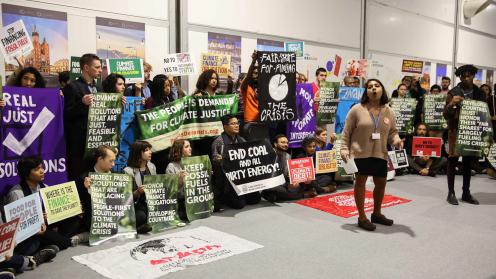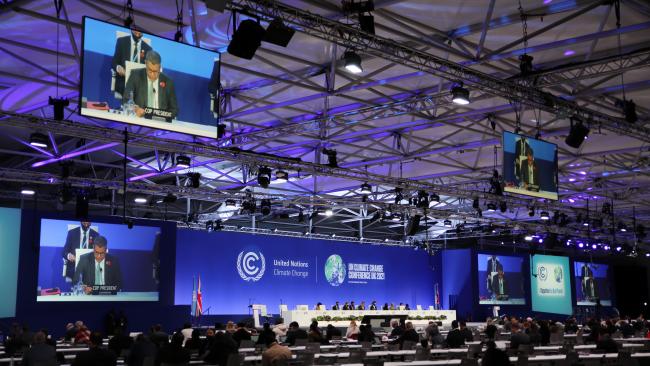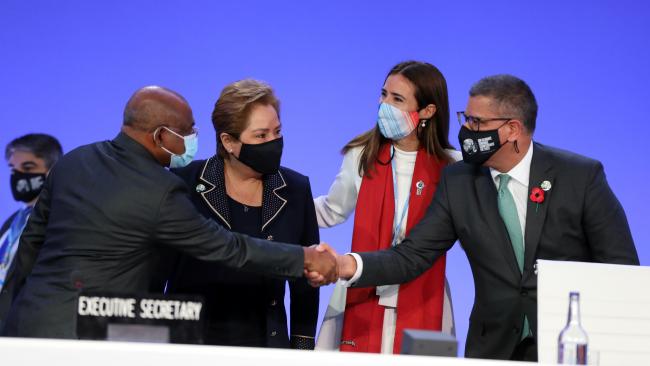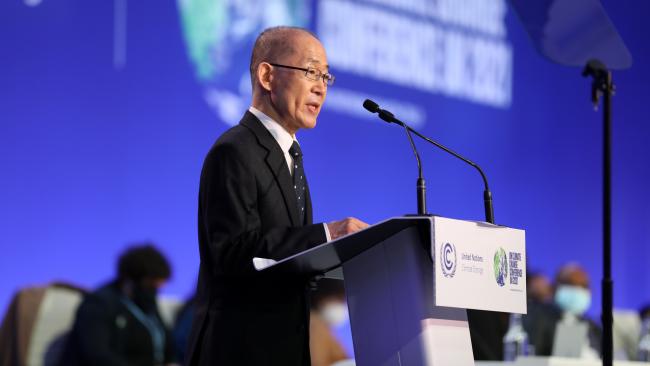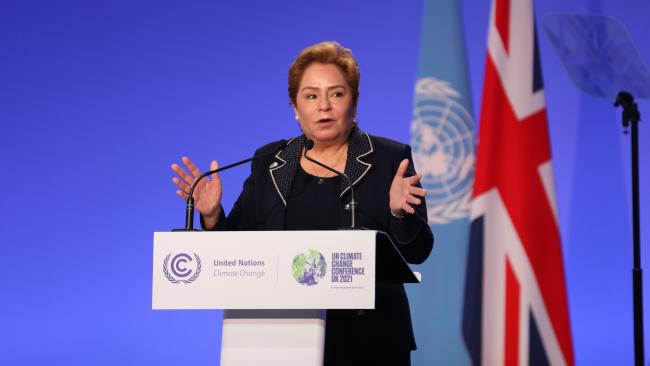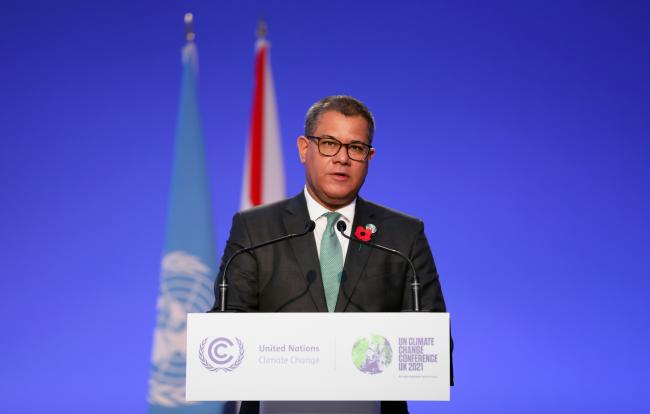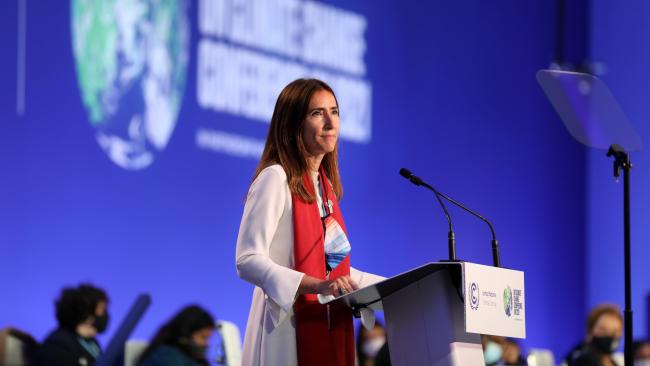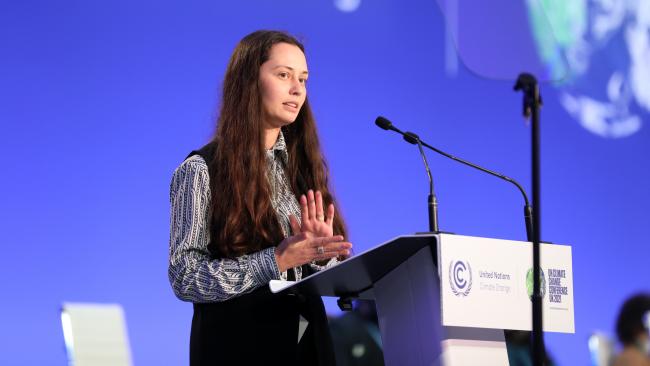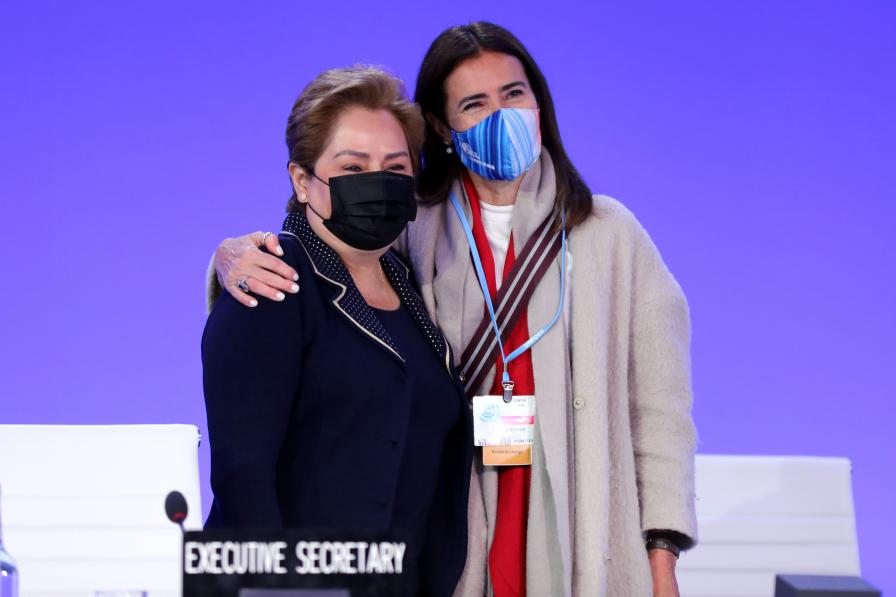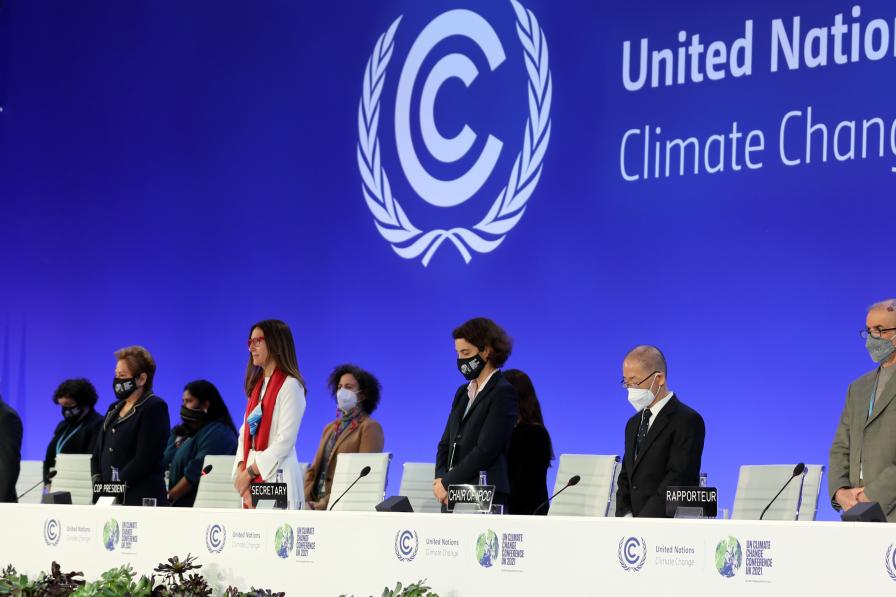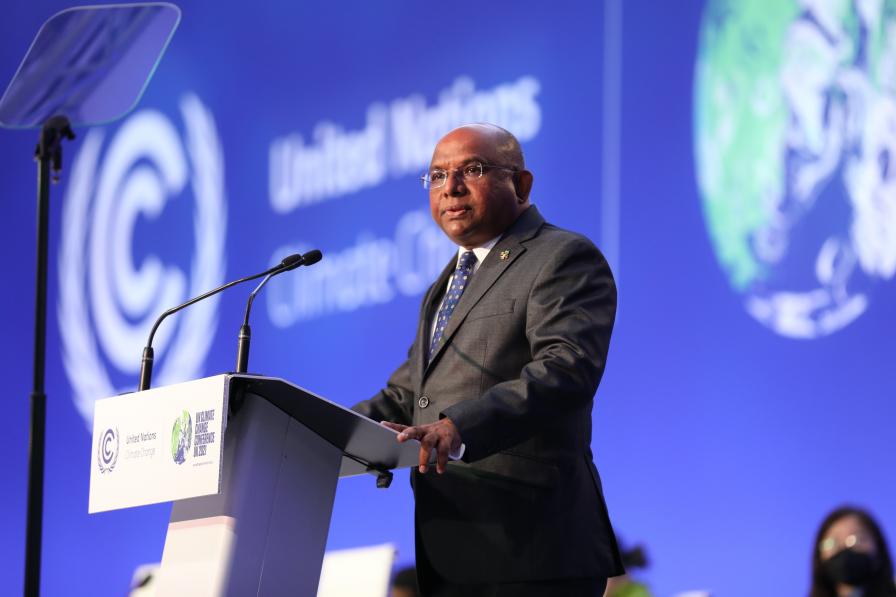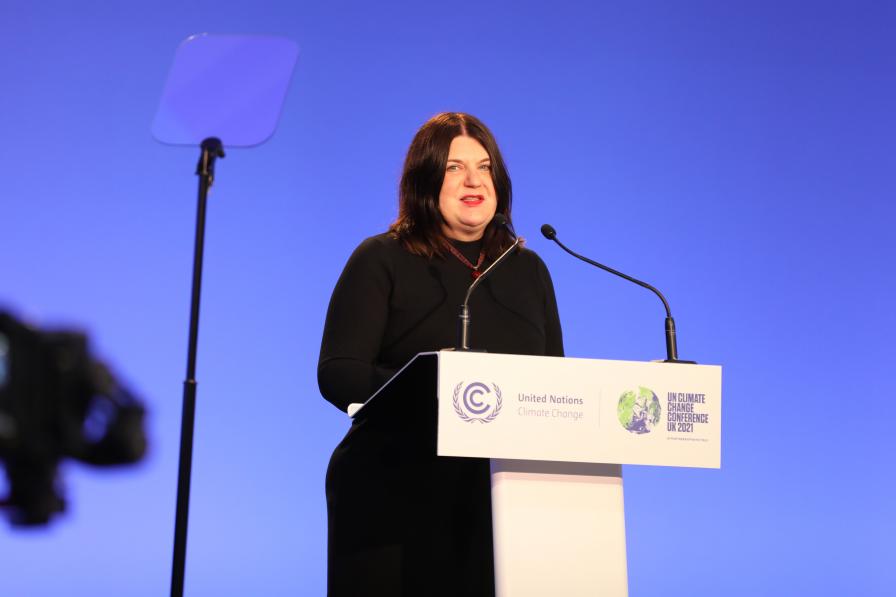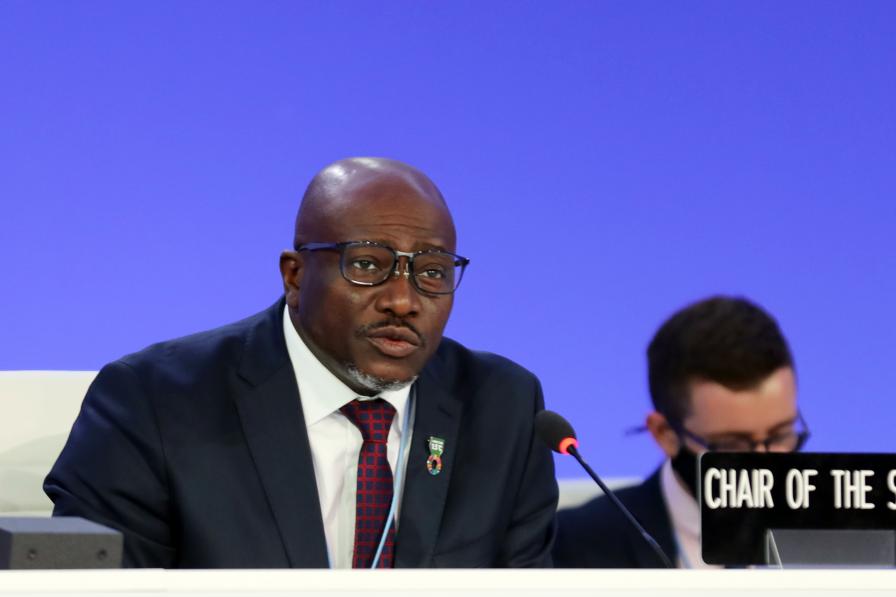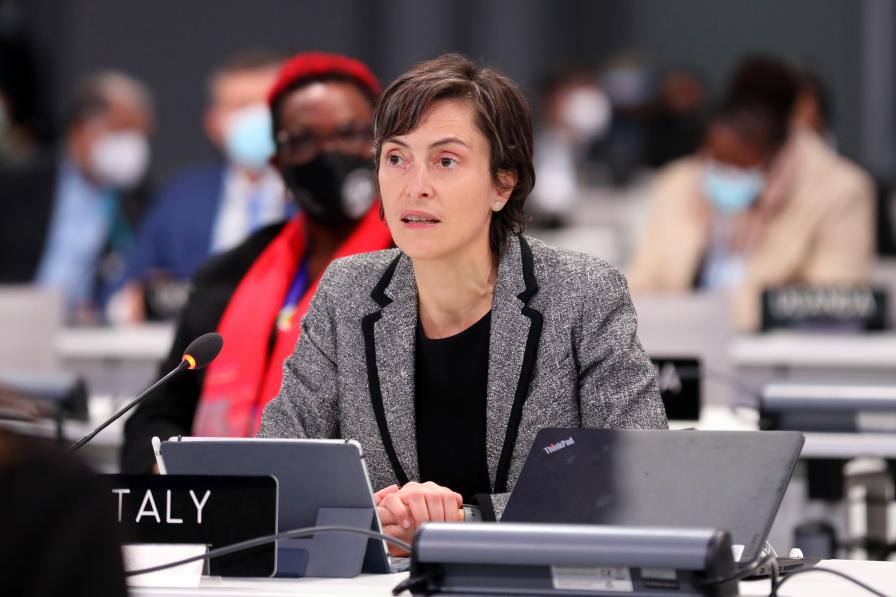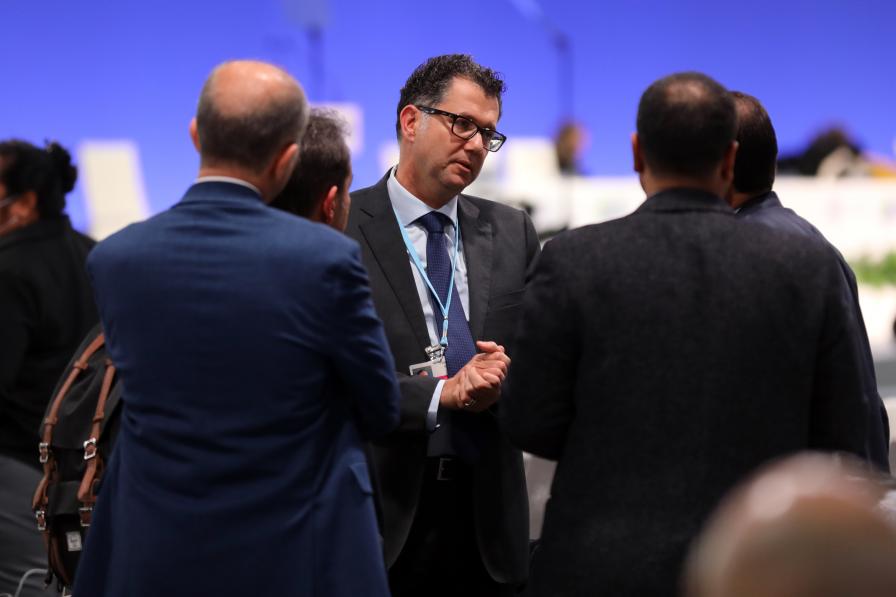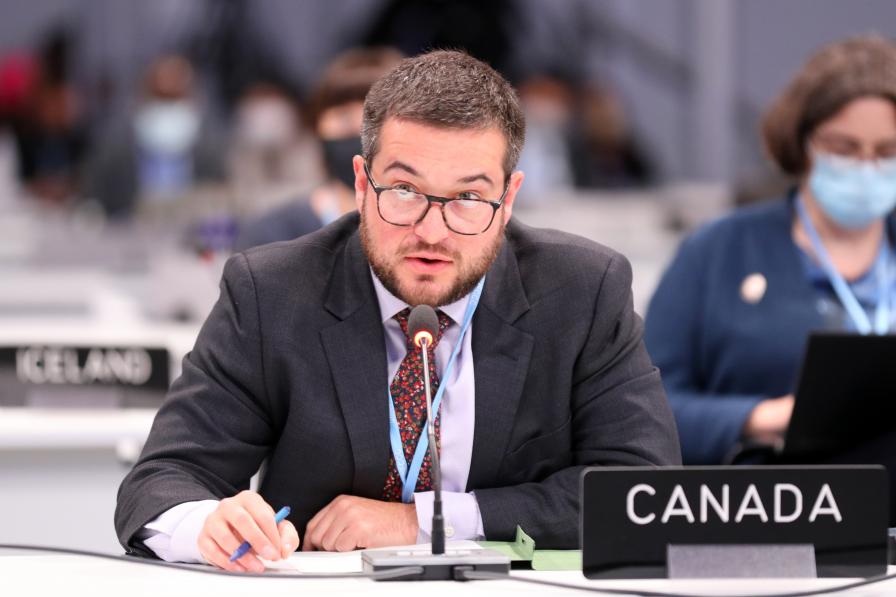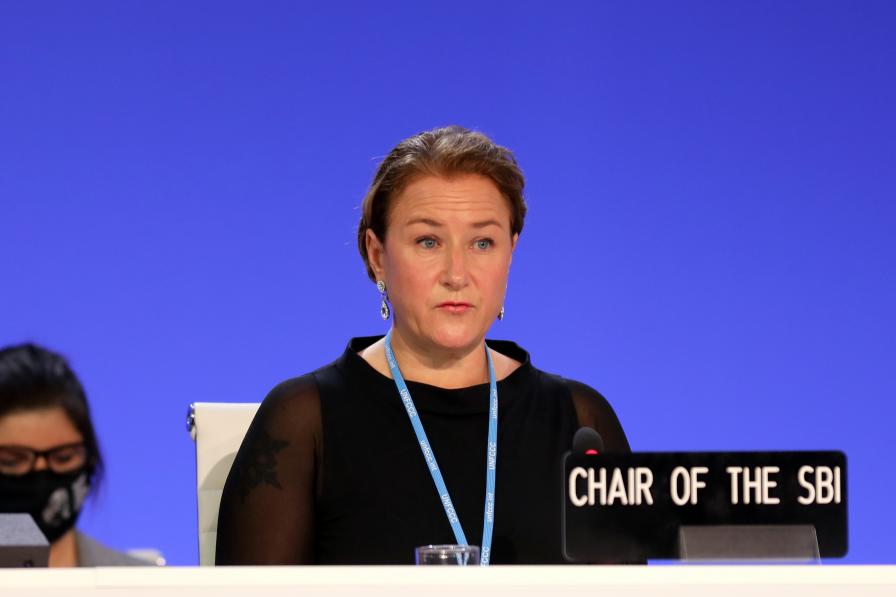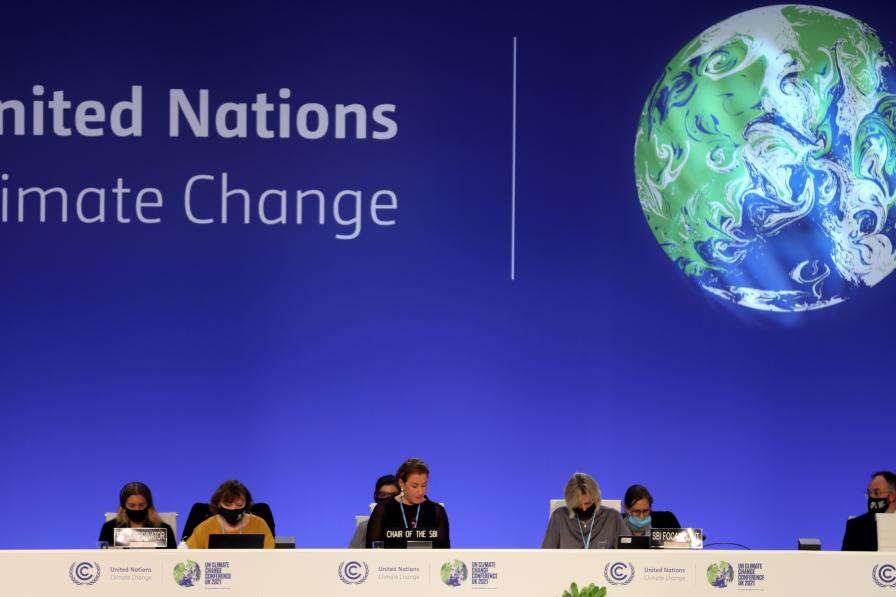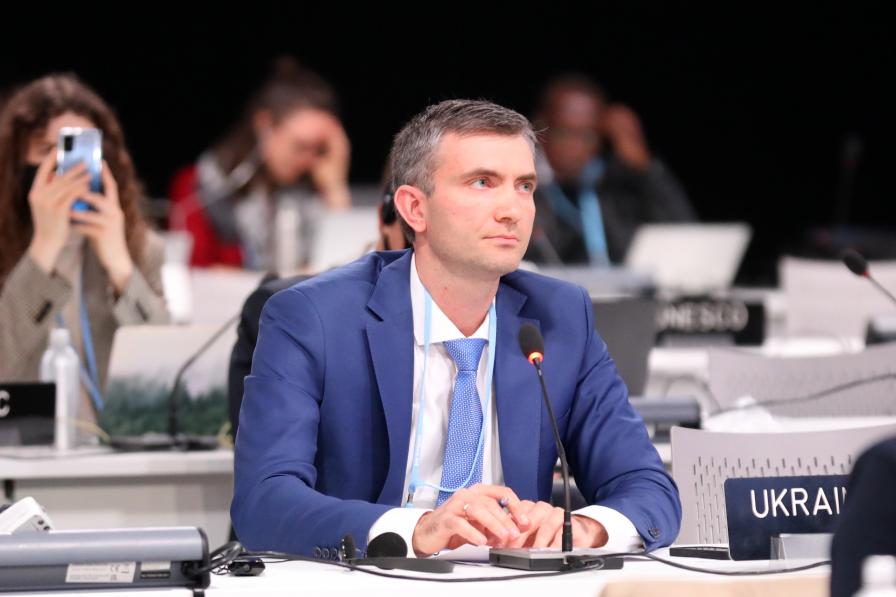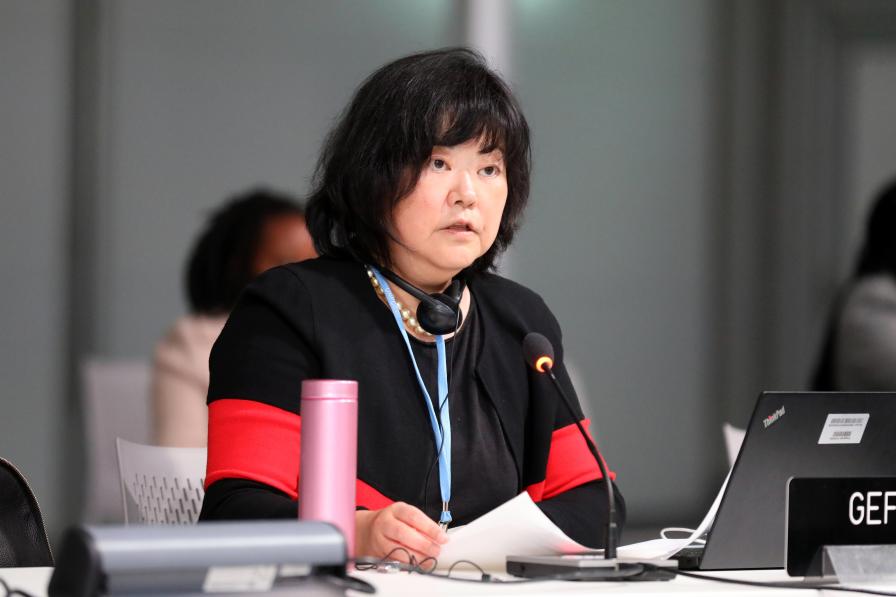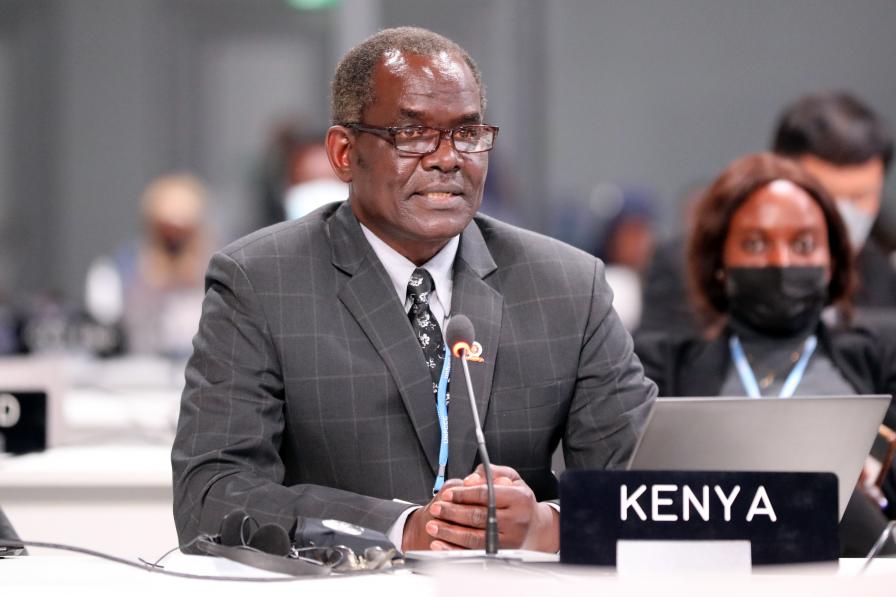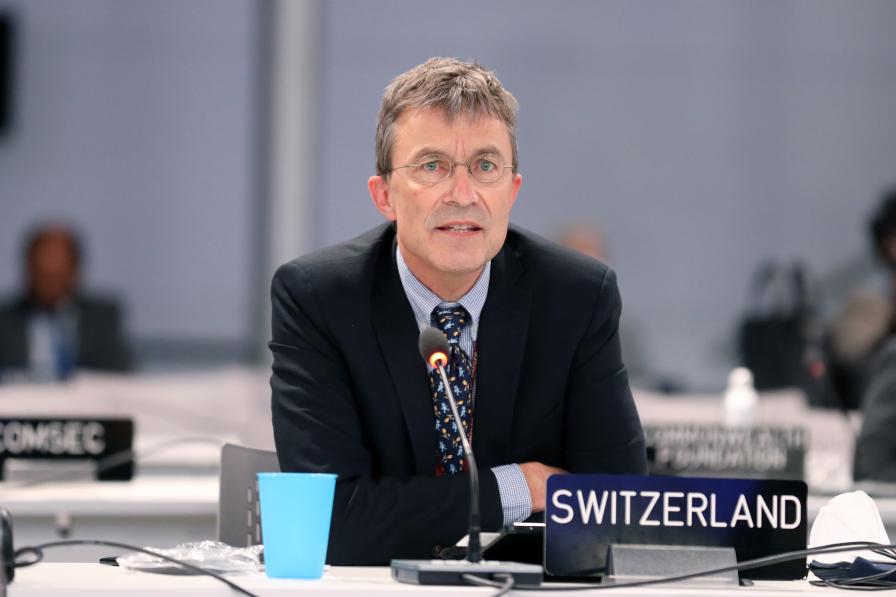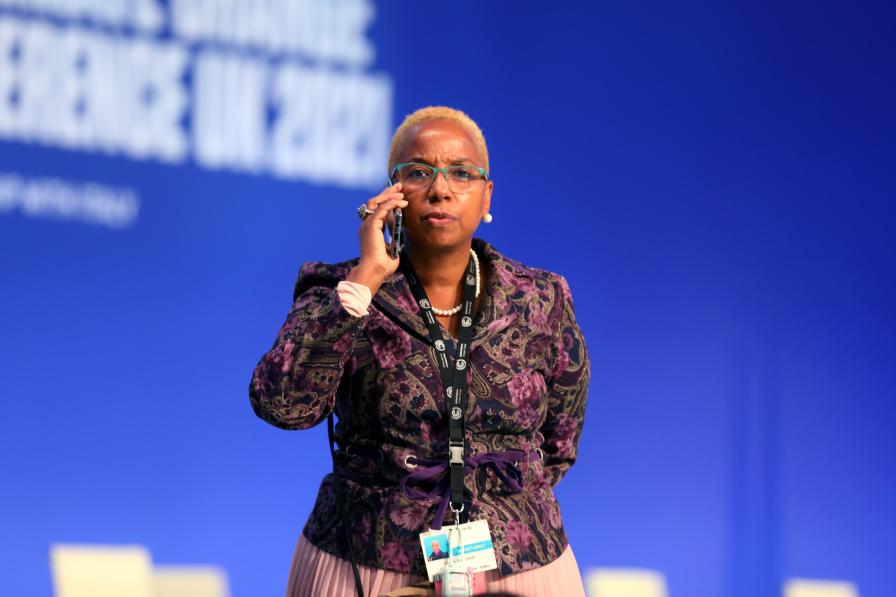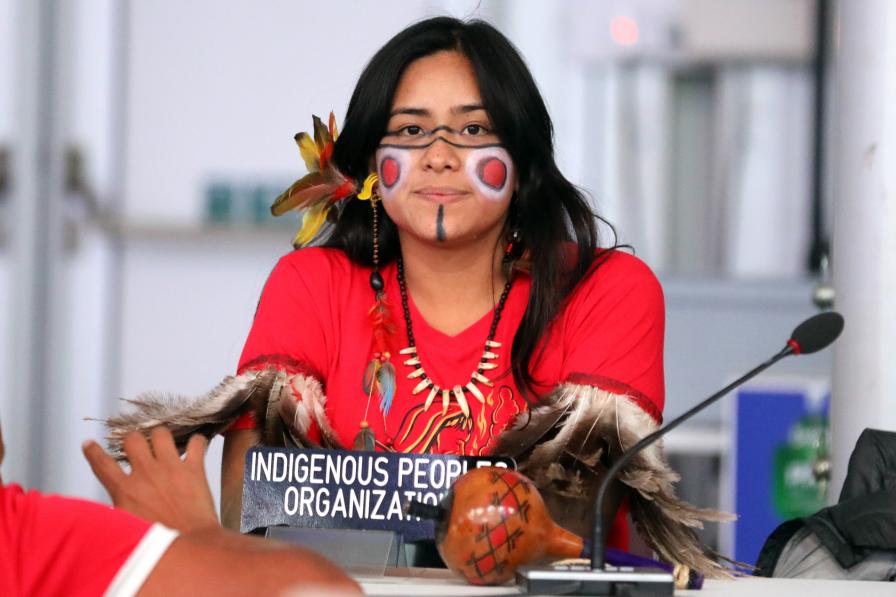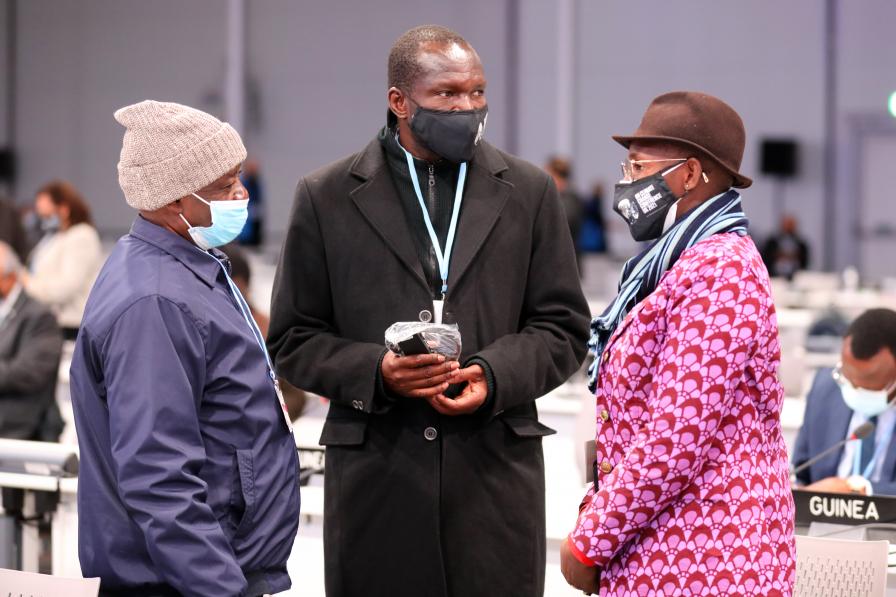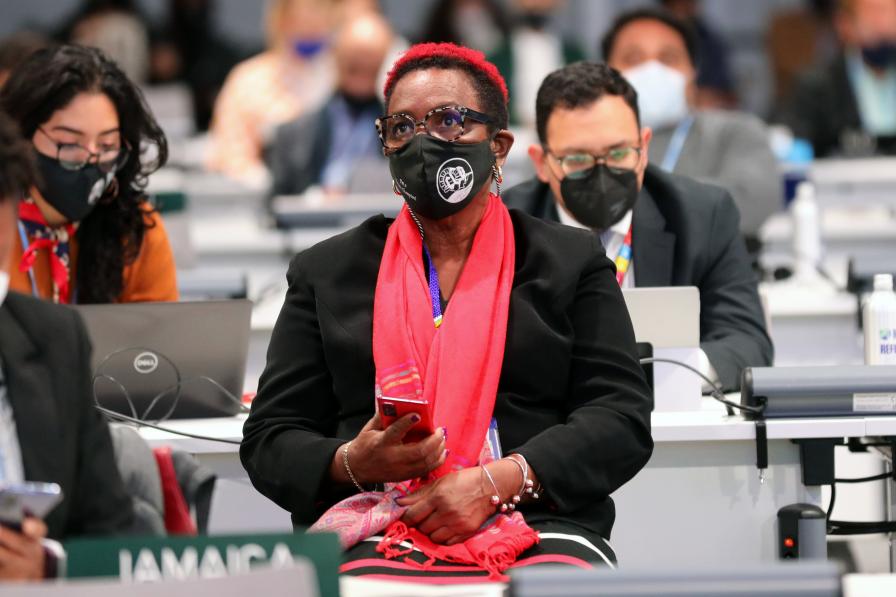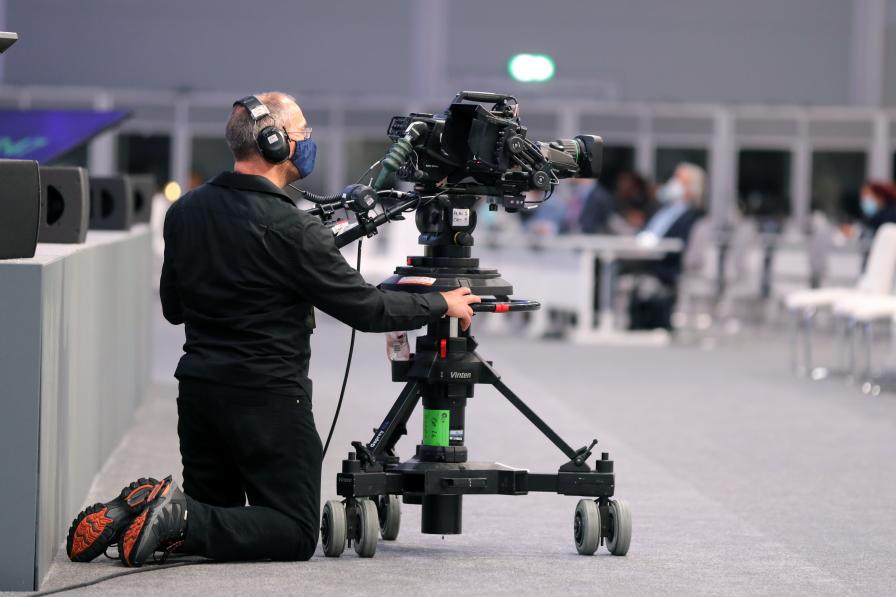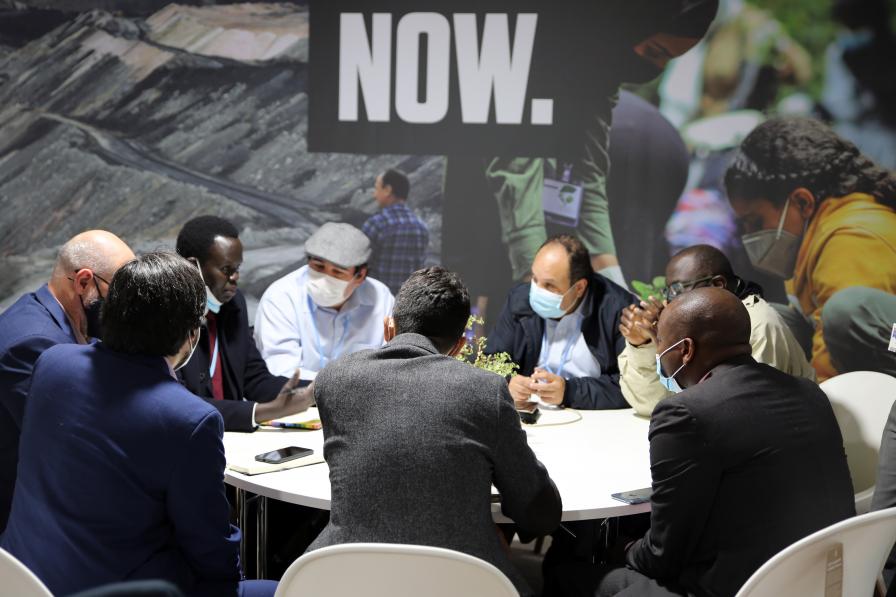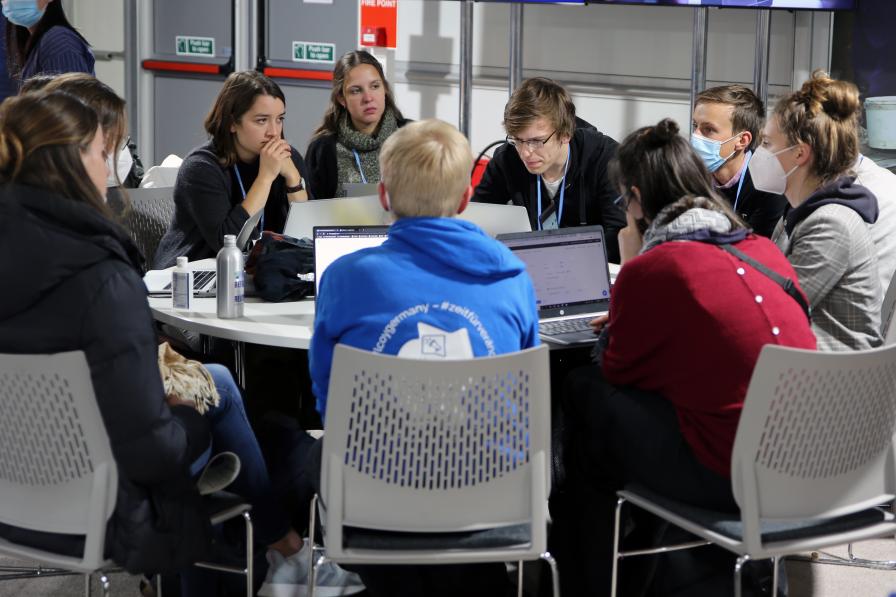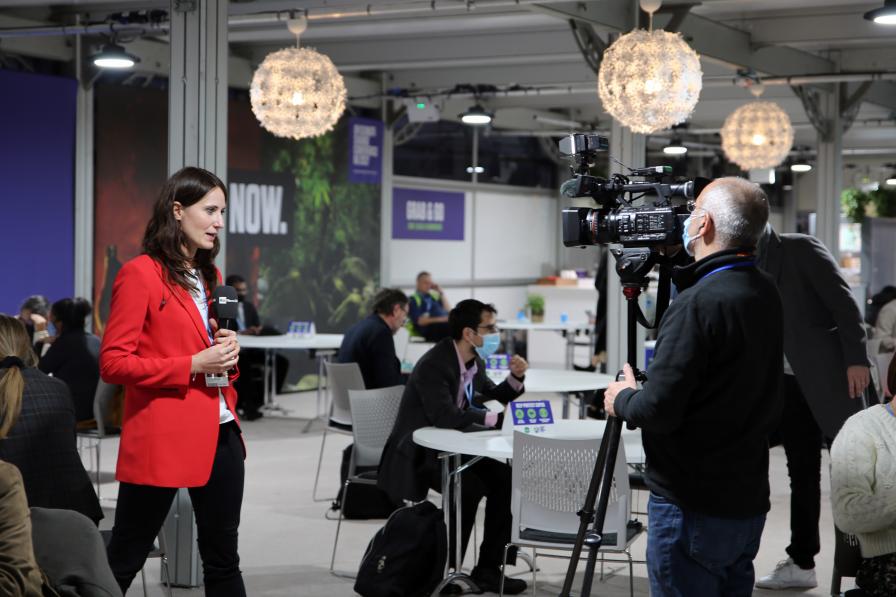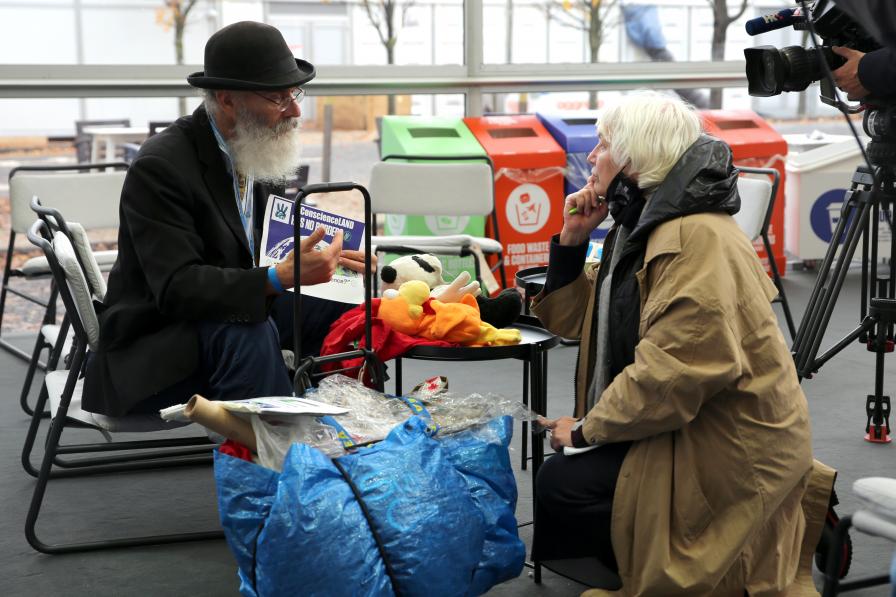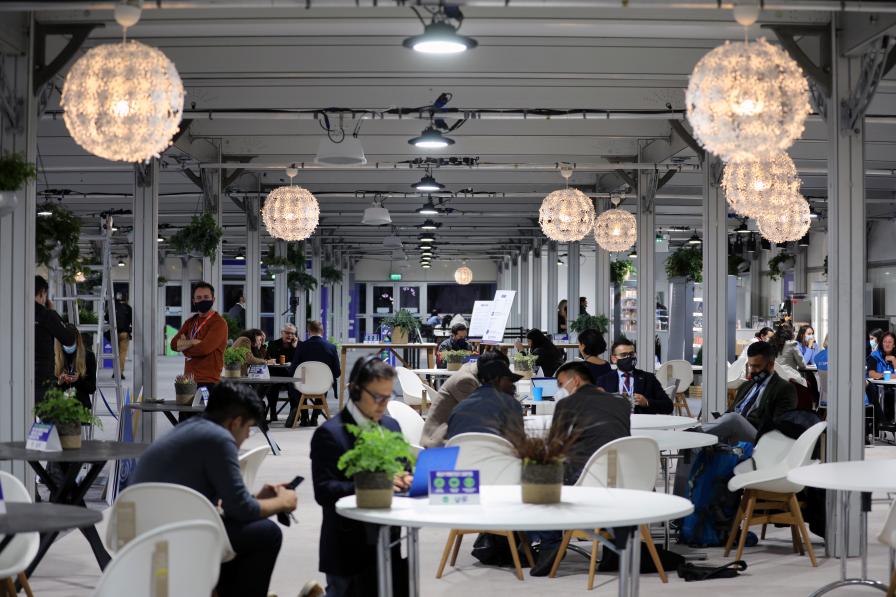Beginning with a moment of silence for the lives lost during the COVID-19 pandemic, it was clear from the outset that the Glasgow Climate Change Conference would be a UN climate meeting like no other.
There are significant health measures in place, including daily testing requirements, mask mandates, and social distancing in the rooms. A ticketing system to limit the number of participants in the plenaries sparked some confusion among delegates, from countries and observers. Civil society voiced concerns about exclusion. In response, the system was repealed in the afternoon.
Highlights of the day included:
- Strong statements calling for more support and higher ambition throughout the opening ceremony and the opening statements
- Adoption of the agendas and launch of all substantive work
You can also dive deeper by reading the full ENB daily report.
Opening Ceremony
A common theme across all statements was the urgent need for action. Many pointed to science, including the Chair of the Intergovernmental Panel on Climate Change (IPCC), Hoesung Lee. He characterized the most recent scientific assessment as “sobering.” Small island states used the word “terrifying.” Like many others, Lee called for a collective response, noting that we share one climatic system that knows no borders. Speakers also underscored the importance of adaptation and loss and damage, alongside mitigation, and support to developing countries for all these activities.
The Glasgow Climate Change Conference is a chance to show that the Paris Agreement can deliver an effective multilateral response. Patricia Espinosa, Executive Secretary of the UN Framework Convention on Climate Change (UNFCCC), called the Paris Agreement “a covenant of hope with humanity.” The President for COP 26, Alok Sharma, called on delegates to come together and ensure that “what Paris promised, Glasgow delivers.”
Many drew attention to the scale of the challenge ahead for this meeting. The agendas are large, because there are two years worth of decision making to catch up on. Over the next two weeks, negotiations will try to conclude the remaining elements of the Paris Agreement rulebook. They will also need to address a number of broader issues, including support to developing countries - an issue that has been in many ways compounded by the pandemic. The World Leaders Summit on Monday will provide a platform for leaders to present their pledges to the world.
There was frustration expressed, too. India Logan-Riley, Ngāti Kahungunu, Aotearoa New Zealand, lamented having to keep speaking about wildfires and flooding while emissions keep rising.
Opening Plenaries
Parties expressed their expectations for the meeting during opening statements. Many developing countries stressed the need for developed countries to provide adequate finance, in line with the long-promised goal of mobilizing USD 100 billion per year by 2020. Developed countries highlighted the need to finalize the rules related to the Paris Agreement rulebook, which will help provide the certainty and confidence to raise ambition.
There are five bodies meeting during this conference:
- COP: Conference of the Parties
- CMA: Conference of the Parties serving as the meeting of the Parties to the Paris Agreement
- CMP: Conference of the Parties serving as the meeting of the Parties to the Kyoto Protocol
- SBSTA: Subsidiary Body for Scientific and Technological Advice
- SBI: Subsidiary Body for Implementation
Each launched their substantive agenda items for this session. The agendas were negotiated before the meeting began, late into the night on Saturday. While several items were not included, the agendas were still adopted by consensus, which is a promising start for the conference.
To receive free coverage of global environmental events delivered to your inbox, subscribe to the ENB Update newsletter.
ENB images are free for use with attribution. For the Glasgow Climate Change Conference, please use Photo by IISD/ENB Mike Muzurakis.
Selected Images from the Opening Plenaries
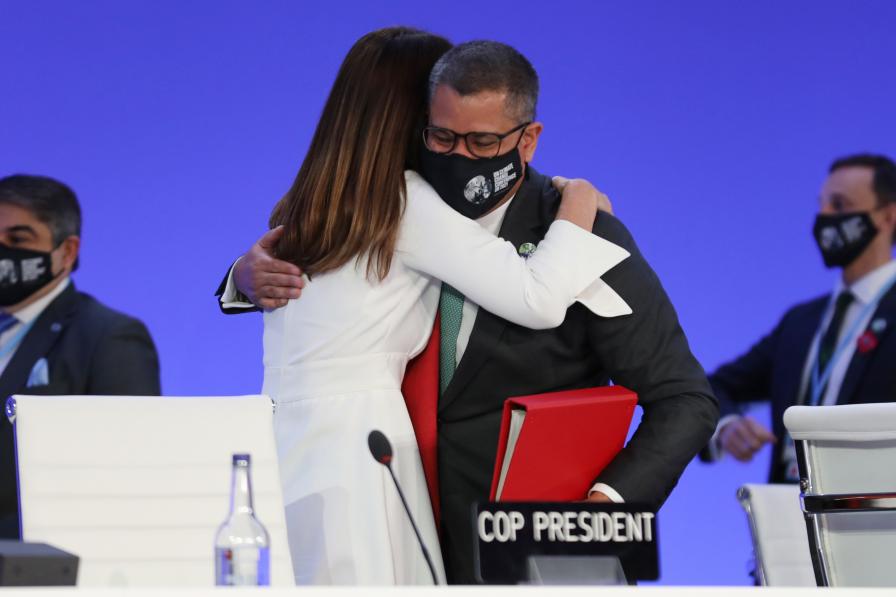
Carolina Schmidt, COP 25 President, Chile, handing over the presidency to Alok Sharma, COP 26 President, UK
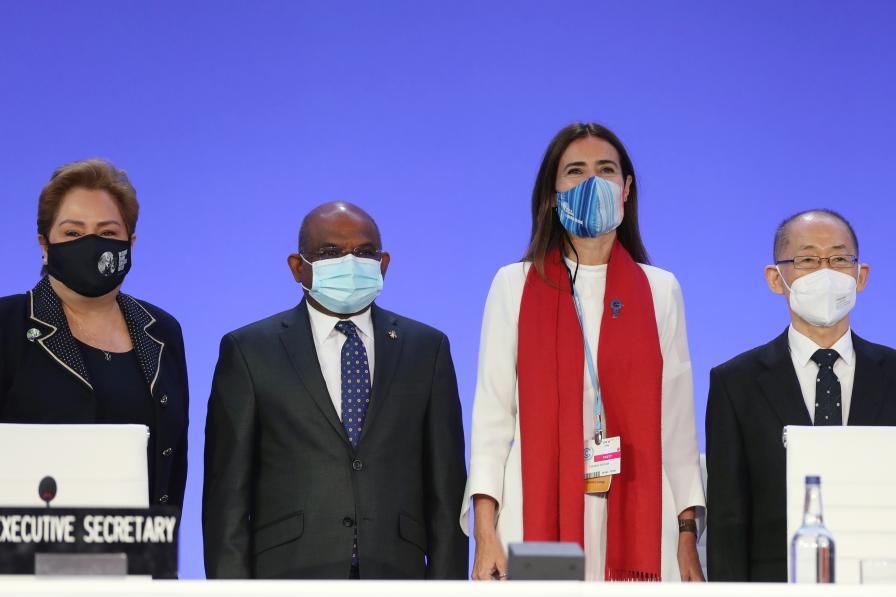
From L-R: Patricia Espinosa, UNFCCC Executive Secretary; Abdulla Shahid, President of the UN General Assembly; Carolina Schmidt, COP 25 President, Chile; and Hoesung Lee, Chair of the Intergovernmental Panel on Climate Change (IPCC)
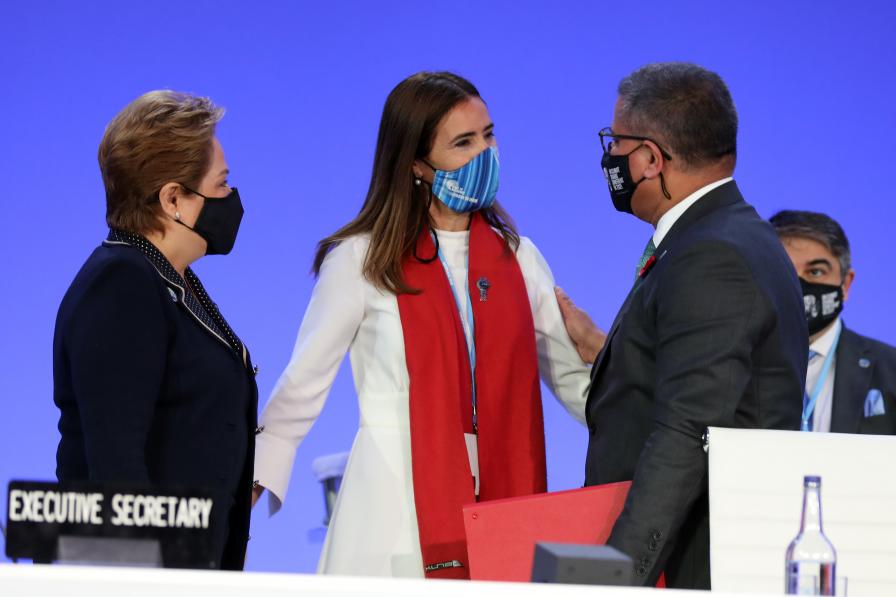
From L-R: Patricia Espinosa, UNFCCC Executive Secretary; Carolina Schmidt, COP 25 President, Chile; and Alok Sharma, COP 26 President, UK
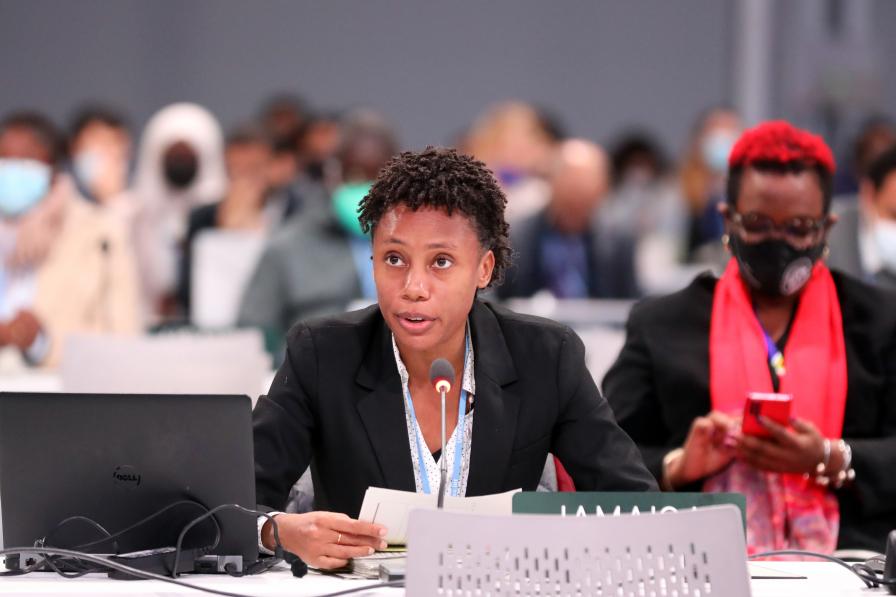
Le-Anne Roper, Co-Chair, The Executive Committee of the Warsaw International Mechanism for Loss and Damage
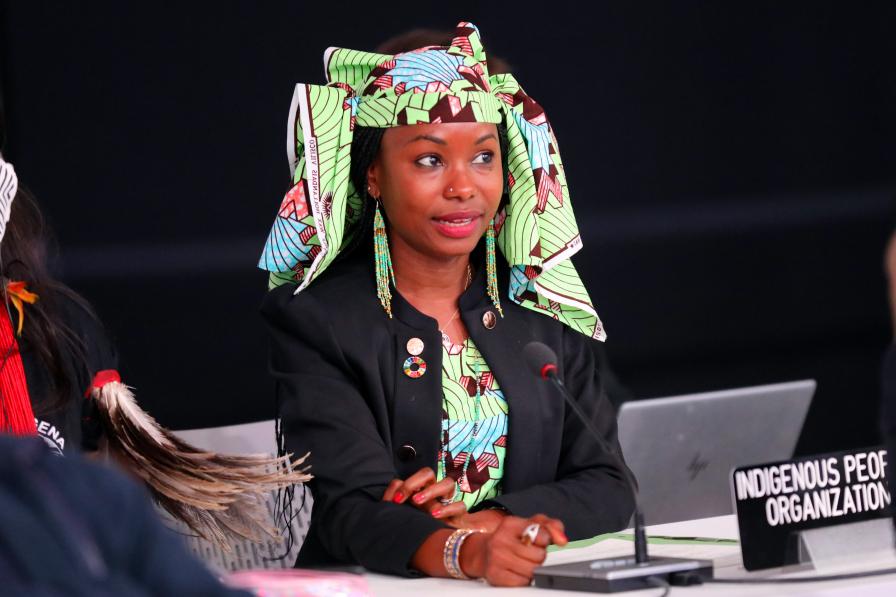
Hindou Oumarou Ibrahim, Co-Chair, Local Communities and Indigenous Peoples Platform (LCIPP) Facilitative Working Group
